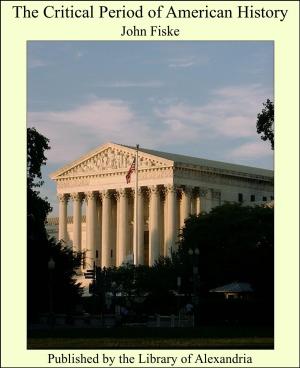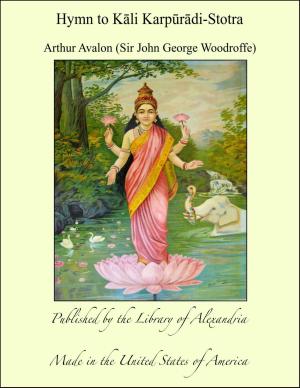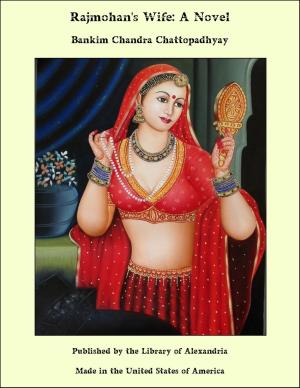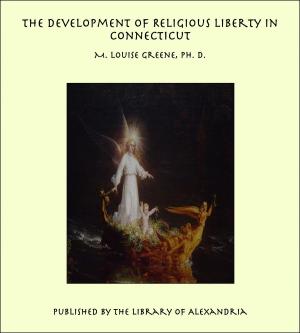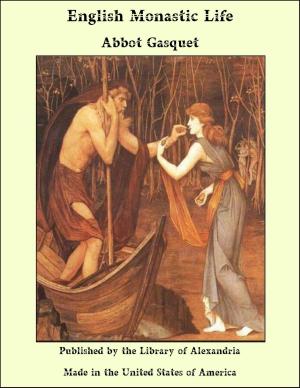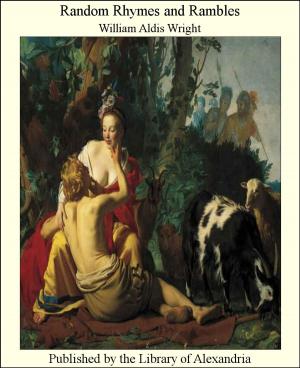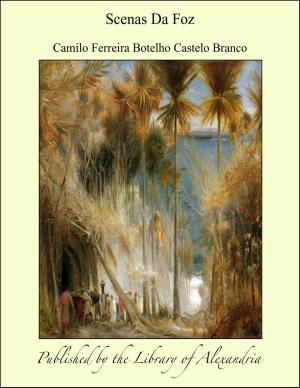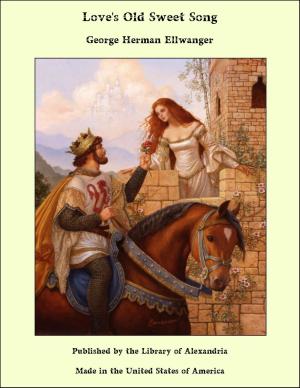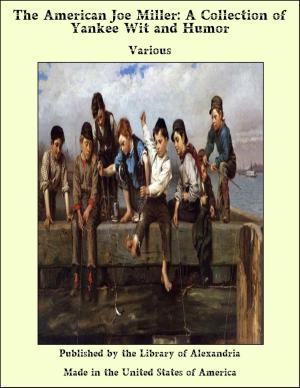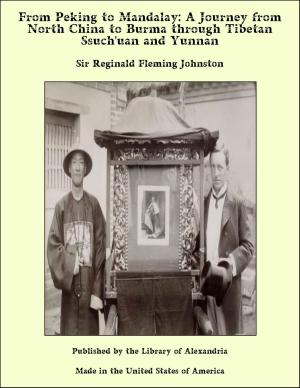| Author: | Fergus Hume | ISBN: | 9781465617965 |
| Publisher: | Library of Alexandria | Publication: | March 8, 2015 |
| Imprint: | Language: | English |
| Author: | Fergus Hume |
| ISBN: | 9781465617965 |
| Publisher: | Library of Alexandria |
| Publication: | March 8, 2015 |
| Imprint: | |
| Language: | English |
Poor Mrs. Tesk having no sense of humour, did not understand that this last remark was ironical, and smiled gravely in full approval. Spruce screwed in his eye-glass, and glanced with a shrug at his surroundings. These were scarcely calculated to satisfy a sybarite, being extremely ugly, inartistic, well-worn and dingy. The room, of no great size, was over-crowded with clumsy furniture made in the early years of the nineteenth century, when solidity was much more valued than beauty. What with six ordinary chairs, two armchairs, a horse-hair sofa to match, a sideboard, a bookcase, and a fender-stool all of mahogany, to say nothing of an Indian screen and a rosewood piano, there was scarcely room to move. And everywhere appeared patterns;--on the carpet, on the wall-paper, on the curtains and on the table-cloth: the eye ached to find some plain spot, which was not striped, or spotted, or scrolled, or dotted. The sole redeeming feature of the dreadful apartment was that many years and constant use had mellowed everything into a sober congruity, so that the whole looked comfortable and homely. As the Home of the Muses, it was an entire failure; as the sanctum of the sedate middle-aged woman in the worn black silk gown, it was quite successful. And as there were many out-of-date educational volumes in the bookcase, and as the walls were decorated with samplers, water-coloured drawings, geographical maps, and even with framed specimens of hand-writing, it could be easily guessed that the apartment belonged to a retired school-mistress. There was something quite pathetic in Mrs. Tesk's flotsam and jetsam, which she had saved from the dire wreck of her superior fortunes. And the landlady was as suited to the room as her visitor was unsuited, for there could not be a greater contrast than the two presented to one another. Mrs. Tesk belonged to a bygone age, while Spruce had to do with the very immediate present. In her shabby-genteel gown, which clothed a thin bony figure, and with a severe parchment-coloured face, the former teacher of the young looked very respectable indeed. Her mittens, her be-ribboned cap, her long gold chain, her large brooch containing locks of hair, and her cloth boots suggested the stories of Emma Jane Worboise and Mrs. Henry Wood. She was prim, pedantic and eminently genteel, the survival of an epoch when women wore full skirts and believed that their duty was to keep house, rather than to smash windows. Spruce stared at her through his eye-glass as he would have done at a prehistoric animal. The would-be boarder was the last expression of man, as representing the lily of the fields which toils not. He resembled a cherub and was dressed like a Nut, that last variety of the masher, the swell, the dandy and the buck. With his clean-shaven pink and white face, his mild blue eyes, his smooth fair hair, little hands, little feet, and general well-groomed aspect, he looked like a good boy thoroughly acquainted with the Church Catechism. But his extravagant attire suggested Piccadilly, music-halls, the Park and afternoon teas. He wore a pale-green suit, the coat of which was made to show his waist, and turned-up trousers, which revealed purple socks and brogues of russia leather. His waistcoat was cut low, revealing a lavender-hued shirt and a purple scarf painted with a portrait of a famous dancer; and he held a green Trilby hat in his gloved hands, together with a gold-headed cane and an unlighted cigarette, which he did not dare to smoke in the severe presence of Mrs. Tesk. On the whole, Mr. Cuthbert Spruce was a thing of beauty, and wore as many colours as Joseph did when he put on his famous coat. He was the kind of male doll that virile men long to kick but dare not lest they should smash the thing.
Poor Mrs. Tesk having no sense of humour, did not understand that this last remark was ironical, and smiled gravely in full approval. Spruce screwed in his eye-glass, and glanced with a shrug at his surroundings. These were scarcely calculated to satisfy a sybarite, being extremely ugly, inartistic, well-worn and dingy. The room, of no great size, was over-crowded with clumsy furniture made in the early years of the nineteenth century, when solidity was much more valued than beauty. What with six ordinary chairs, two armchairs, a horse-hair sofa to match, a sideboard, a bookcase, and a fender-stool all of mahogany, to say nothing of an Indian screen and a rosewood piano, there was scarcely room to move. And everywhere appeared patterns;--on the carpet, on the wall-paper, on the curtains and on the table-cloth: the eye ached to find some plain spot, which was not striped, or spotted, or scrolled, or dotted. The sole redeeming feature of the dreadful apartment was that many years and constant use had mellowed everything into a sober congruity, so that the whole looked comfortable and homely. As the Home of the Muses, it was an entire failure; as the sanctum of the sedate middle-aged woman in the worn black silk gown, it was quite successful. And as there were many out-of-date educational volumes in the bookcase, and as the walls were decorated with samplers, water-coloured drawings, geographical maps, and even with framed specimens of hand-writing, it could be easily guessed that the apartment belonged to a retired school-mistress. There was something quite pathetic in Mrs. Tesk's flotsam and jetsam, which she had saved from the dire wreck of her superior fortunes. And the landlady was as suited to the room as her visitor was unsuited, for there could not be a greater contrast than the two presented to one another. Mrs. Tesk belonged to a bygone age, while Spruce had to do with the very immediate present. In her shabby-genteel gown, which clothed a thin bony figure, and with a severe parchment-coloured face, the former teacher of the young looked very respectable indeed. Her mittens, her be-ribboned cap, her long gold chain, her large brooch containing locks of hair, and her cloth boots suggested the stories of Emma Jane Worboise and Mrs. Henry Wood. She was prim, pedantic and eminently genteel, the survival of an epoch when women wore full skirts and believed that their duty was to keep house, rather than to smash windows. Spruce stared at her through his eye-glass as he would have done at a prehistoric animal. The would-be boarder was the last expression of man, as representing the lily of the fields which toils not. He resembled a cherub and was dressed like a Nut, that last variety of the masher, the swell, the dandy and the buck. With his clean-shaven pink and white face, his mild blue eyes, his smooth fair hair, little hands, little feet, and general well-groomed aspect, he looked like a good boy thoroughly acquainted with the Church Catechism. But his extravagant attire suggested Piccadilly, music-halls, the Park and afternoon teas. He wore a pale-green suit, the coat of which was made to show his waist, and turned-up trousers, which revealed purple socks and brogues of russia leather. His waistcoat was cut low, revealing a lavender-hued shirt and a purple scarf painted with a portrait of a famous dancer; and he held a green Trilby hat in his gloved hands, together with a gold-headed cane and an unlighted cigarette, which he did not dare to smoke in the severe presence of Mrs. Tesk. On the whole, Mr. Cuthbert Spruce was a thing of beauty, and wore as many colours as Joseph did when he put on his famous coat. He was the kind of male doll that virile men long to kick but dare not lest they should smash the thing.

